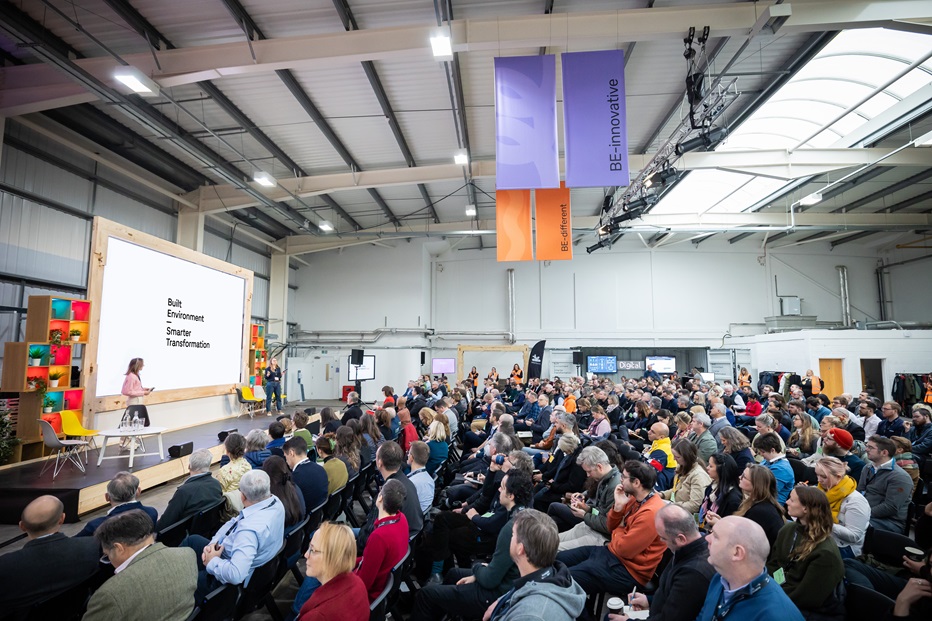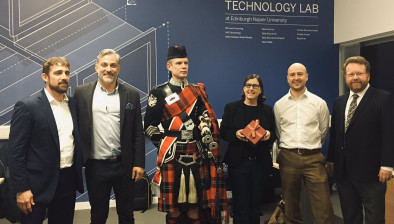Scotland’s National Retrofit Centre to become non-domestic demonstrator

BE-ST (Built Environment – Smarter Transformation) is to undertake a deep retrofit of Scotland’s National Retrofit Centre and use the opportunity to transform the building into a living demonstrator of best practice in the retrofit of non-domestic buildings.
The organisation has been awarded over £1.2 million in grant funding from the Scottish Government’s Salix Public Sector Heat Decarbonisation Fund to retrofit the Accelerator Lab at its Hamilton Technology Park Innovation Campus.
BE-ST is Scotland’s national innovation centre for the built environment and is administered by Edinburgh Napier University. Through the process of retrofitting, BE-ST will test and optimise approaches and work out the complexities of retrofitting a large-scale, multi-use building like the Accelerator Lab so that the challenges, solutions and learnings can be shared in real time with stakeholders across the built environment through regular updates via BE-ST’s social media and online channels as well as open-days.
Scotland’s Public Sector Heat Decarbonisation Fund is delivered by Salix and is run by the Scottish Government.
The retrofit plan is ambitious. Designed by John Gilbert Architects (JGA) and BE-ST, it will take a fabric-first approach to achieve both the International EnerPHit and Scottish Net Zero Public Sector Building standards. The building will transition from its current gas-based heating system to an innovative zero direct emissions heating solution and will see the installation of mechanical ventilation and heat recovery systems, a cutting-edge curtain-walling system, a solar PV integrated roof, and energy-efficient LED lighting controls amongst other measures.
Supported by JGA, BE-ST staff, Edinburgh Napier University and specialist contractors, both during the retrofit process and once complete, the Accelerator Lab will showcase what innovative deep retrofit of large-scale non-domestic buildings can look like.
Stephen Good, CEO of BE-ST, said: “Scotland’s National Retrofit Centre should be a shining beacon of best practice that the entire sector is responsible for, and involved in. Not only will people learn from the retrofit training that will take place within the building, but from the building’s own retrofit journey too.
“That’s why securing this investment from the Scottish Government, which builds on generous funding provided by our host institution Edinburgh Napier University to help purchase the building in 2022, will allow us to walk the walk, not just talk the talk.
“Retrofitting existing buildings to achieve zero carbon outcomes is never easy but what we will learn by going through this process will be invaluable and we are excited to share the journey with the sector every step of the way.”
Caitriona Jordan, head of retrofit at BE-ST and the project lead, said: “The Accelerator Lab retrofit is a significant step towards understanding what it means to undergo a deep retrofit of a complex, non-domestic building like this. We will be learning, documenting and measuring throughout the entire process to meet EnerPHit and Net Zero Public Sector Building Standard requirements – all to create a living case study at BE-ST that we hope will inspire and inform future retrofit across Scotland and beyond.”
Director of programmes at Salix, Ian Rodger, added: “We need to take action today to address climate change which is one of the biggest issues of our time. We are looking forward to working with Edinburgh Napier University and the BE-ST project to retrofit the Accelerator Lab at its Hamilton Technology Park Innovation Campus.
“We are impressed by the vision the university has for its future and how it plans to minimise its impact on the environment.”
The BE-ST Accelerator Lab retrofit project also aligns with Edinburgh Napier University’s long-term vision for sustainability and infrastructure development. As part of project VISION, the University is committed to creating a future-ready campus that meets the needs of its diverse community while minimising its environmental impact, and BE-ST’s Accelerator Lab will be a critical pilot in establishing future programmes of work across the university’s wider campus.























